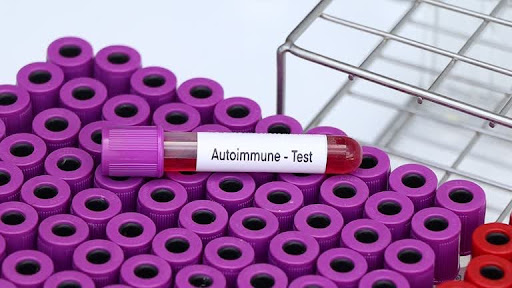Autoimmune Diseases That Cause Inflammation: What You Need to Know
Many chronic health problems now have autoimmune diseases that cause inflammation as a main reason. As a result, these disorders occur when the body’s immune system begins attacking its own body which causes inflammation, hurts tissues and leads to major problems over time. You should understand how these autoimmune diseases appear, what sets them off and the inflammation they create to manage symptoms and make your life better.
Getting to Know Autoimmune Inflammation

The immune system is in place to defend our bodies from harmful things like bacteria, viruses and many other pathogens. In patients with autoimmune diseases, this body process works incorrectly. Because the immune system looks for threats in the wrong direction, it sees your body’s own tissues and cells as enemies and attacks them with inflammation. This type of inflammation remains constant instead of diminishing with time and can actually lead to health concerns.
Autoimmune diseases that lead to chronic inflammation cause symptoms in numerous body parts. It can result in pain in the joints, difficulties with the skin, reduced function of internal organs, a lack of energy and widespread symptoms that make it hard to complete daily tasks. Doctors use inflammation to help diagnose and track these medical problems.
Listed are common autoimmune diseases caused by inflammation.
A major sign of many autoimmune diseases is chronic inflammation. The joints are the main area affected by rheumatoid arthritis (RA) and this causes joint swelling, stiffness and ongoing damage. In the disease, the immune system causes the synovium—the joint lining—to become inflamed.
In addition, systemic lupus erythematosus (SLE) is an autoimmune condition that brings inflammation to the skin, joints, kidneys, heart and additional organs. Lupus is often tricky, because it can present symptoms that resemble other diseases and its symptoms may suddenly worsen without warning.
Both Crohn’s disease and ulcerative colitis are included in IBD and both cause swelling of the intestines. Signs of these diseases include stomach pain, watery stools, a loss of weight and tiredness. As a result of the immune’s response, inflammation in the intestines can upset nutrient absorption and the health of the gut.
Two other types in this category are psoriasis and psoriatic arthritis. A hypersensitive immune system is responsible for creating patches on the skin with psoriasis and these same processes cause joint inflammation in psoriatic arthritis. If both conditions are left untreated, they can greatly reduce a person’s quality of life.
What Causes and Sets Off Autoimmune Inflammation

The reason for autoimmune diseases being what it is is not entirely understood, but experts believe a variety of genetic, environmental and hormonal factors might be involved. A few genes might make people more likely to get an autoimmune disease, but the actual disease begins when something like stress, an infection or exposure to toxins happens.
Hormones play a role, because women are more likely to develop an autoimmune disease during childbearing years. It appears that variations in estrogen hormone may be connected to responses of the immune system and inflammation.
Another important object of research in autoimmune diseases focuses on the trillions of microbes living in the digestive tract. When there are too many bad bacteria in the gut and too few good ones, it is said to increase intestinal passageways and cause inflammation throughout the body. It frequently results in autoimmune diseases starting or suffering from further challenges.
Why Inflammation Can Cause Progression in Autoimmune Disease
Inflammation is more than a sign of autoimmune disease; it actually causes damage to tissues and drives the condition forward. When not managed, the inflammatory response may wear away joint cartilage, hurt important organs and stop regular functions in the body. In the long run, these problems cause lasting changes that must be managed and, on occasion, treated with surgery.
Many individuals with autoimmune illnesses often have increased amounts of CRP and ESR. They assist doctors in checking how active the disease is and how well therapy is working.
Also, inflammation can influence other parts of the body, specifically the cardiovascular system. Those diagnosed with autoimmune diseases such as lupus or RA are at greater risk of heart disease since their body’s inflammation is damaging blood vessels and causing atherosclerosis.
Finding Out If You Have Autoimmune Disease
Finding autoimmune diseases that result in inflammation is not easy, as their symptoms often look the same in different illnesses. Many disorders cause people to feel tired, have achy joints and develop skin rashes, so medications and other tests are often needed.
Your doctor will often base a diagnosis on blood samples, medical imaging and a check of your vital signs and physical sensations. Autoantibodies help doctors diagnose certain disorders because they target the body’s own tissues. If your tests show antinuclear antibodies (ANA), it may signal lupus, but if they show anti-CCP antibodies, rheumatoid arthritis is a more likely cause.
Making the correct diagnosis helps doctors select treatments that reduce inflammation and keep the body working well.
Ways to Deal with Inflammation in Autoimmune Disease
Doctors use treatments for autoimmune-related inflammation to lower the immune system’s activity and manage inflammation so the tissue stays safe from further harm. Some of the most used treatments are immunosuppressive drugs, corticosteroids and medications known as DMARDs. Lately, doctors have begun using biologic therapies to control inflammation and reduce harm to the immune system.
Adjusting daily habits can greatly help control chronic inflammation. Some of the best foods to eat for flare-ups are those rich in omega-3, antioxidants and fiber. Sticking to an exercise routine, getting enough sleep and using meditation and yoga have all helped reduce inflammation.
Patients are supported by their healthcare providers to regularly watch for disease symptoms, change their treatment as needed and act promptly if complications appear. Managing a chronic disease successfully and improving outcomes is largely due to early help and regular treatment.
Life with Chronic Inflammation Caused by Autoimmune Illness
Experiencing inflammation from an autoimmune disease means dealing with challenges to the mind, body and emotions. Surprises with frequent symptoms and unpredictable episodes can bring about frustration and leave the patient tired. Yet, when people have the right help and are proactively managed, most can continue to live well.
Groups for support, therapy and learning programs all give useful ideas for dealing with life with autoimmune conditions. If patients have knowledge about their disease, they often make better decisions and follow their plans.
People with an autoimmune inflammatory condition should remember to watch their health, see medical professionals regularly and immediately share any new or worse symptoms.
Conclusion: Making People Aware and Encouraging Early Diagnosis
Among autoimmune diseases that lead to inflammation, health problems are common, while greater awareness and improvements in medical care are helping to control these diseases. It is important to recognize chronic inflammation, see a doctor right away and follow a full care plan to manage these difficult diseases.
If you understand the ways autoimmune diseases and inflammation can impact your body and your health, you can act to reduce risks and manage your disease successfully.



hdyrkxrwtkimhdvdgkmgmymfupioep